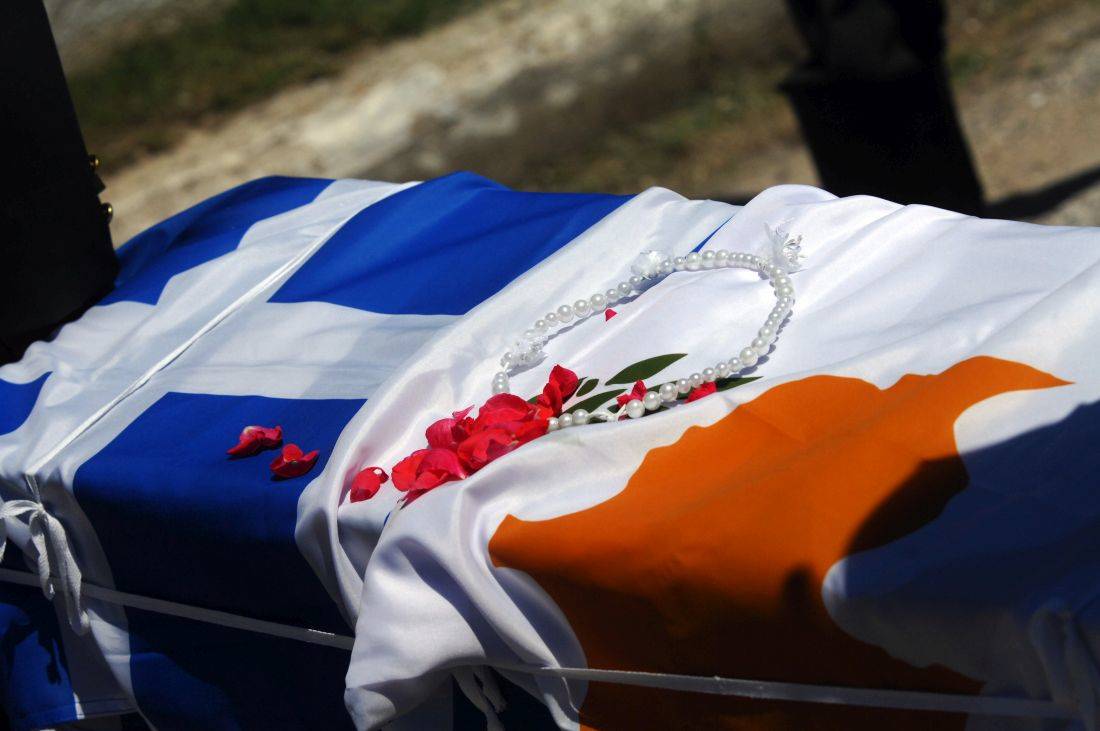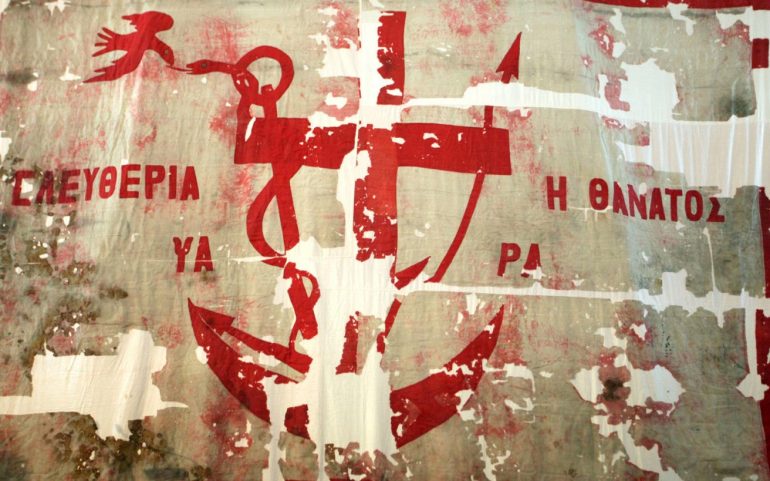There is a lot we know about the Greek Revolution of 1821, either from school or from our own readings (although we usually only remember them there, around March 25th and then forget them again). One issue that is rarely addressed, however, is how Cyprus became involved in the battle for the liberation of Greece from the Turkish yoke.
Testimonies and historical documents show that about 1.000 Cypriots fought in the Greek Revolution, with many of them losing their lives during the battles. Even more were the victims of retaliation by the Turks in Cyprus for the participation of Cypriots in the liberation struggle.
Commitment to Friendly Society
In the plan of the Friendly Society for the organization of the uprising of the Greeks against the Ottoman occupiers, Cyprus is not mentioned as one of the areas where liberation actions would take place. However, in the "General Plan" of the friendly, and specifically in the 15th article, there is a reference to the commitment of the then Archbishop of Cyprus, Kyprianou, to contribute to the liberation struggle with money and supplies. This proves on the one hand that the Friendly Society hoped for Cyprus' support for the success of the struggle, using it as a supply base for the Greek forces, on the other hand that Archbishop Kyprianos was aware of the friendly plans, and had probably initiated the Friendly Society himself. .
Besides, in October 1820, Alexandros Ypsilantis himself had sent a letter to Kyprianos, thanking him for the "brave contribution" he had allegedly promised to the "School of the Peloponnese" - apparently, the head of the Friendly Society used this term to do not raise suspicions in case the letter fell into the hands of the Ottomans.
Kyprianou's promise came true in 1821, when Admiral Kanaris arrived in Cyprus with his ships to load them with supplies for the rebellious Greeks, money, but also with Cypriot volunteers who wanted to strengthen the struggle for liberation. There are also recorded itineraries of Greek ships to and from Cyprus during the Revolution, where they were loaded with necessary supplies.
The Phalanx of the Cypriots

The action of the so-called "Phalanx of the Cypriots" in the Greek Revolution is relatively well known. This is a group of Cypriot soldiers, led by General Hadjipetros, who fought very bravely in various battles. They even had their own flag, which was white with a blue cross in the middle and in a quarter it read: "Greek flag of the homeland of Cyprus". This flag is on display today at the National Historical Museum of Athens.
The total number of Cypriot fighters who fought in Greece during the Revolution is estimated at 1.000. Sources from the time show that about 130 Cypriots lost their lives in the Battle of Athens, while Cypriots were among the dead at the exit of Messolonghi. In fact, in the Holy City of Messolonghi there is a monument dedicated to the Cypriot fallen.
There is a historical saying of General Hadjipetros about the heroism shown by the men of the Phalanx of the Cypriots in the battles in which they participated. Pointing to the medals on his uniform, he said: "These are what the heroism and youth of the Cypriot Phalangists saw for me."
It is worth noting that the Phalanx of the Cypriots was reorganized again under the leadership of General Hadjipetros in 1853 and fought in Thessaly.
The harsh retaliation of the Ottomans

Back in Cyprus, the Greeks tried in every way to support the uprising against the Ottomans, even at the risk of their lives. This, of course, angered the Ottomans, who carried out atrocities to bend their minds and punish those who strengthened the Greek struggle, thus preventing a possible uprising on Cypriot soil.
With the outbreak of the Revolution, the Turkish sultan ordered the disarmament of all Greeks in Cyprus, and Archbishop Kyprianos called on them to obey, in order to quell the Ottomans' suspicions that an uprising was being planned on Cypriot soil. But despite his persuasions, Archimandrite Theofylaktos Theseus (who later fought in the Revolution) tried to incite the people of Larnaca by distributing revolutionary leaflets, a move that angered the Turks.
Kyprianos himself, of course, was well aware that the Ottomans wanted to get him out of the way and were looking for an excuse to execute him, due to his patriotic feelings. According to the English traveler John Carn, who had talked to him during a trip to Cyprus, Kyprianos had told him: "My death is not far away. "I know they are waiting for an opportunity to kill me." He even had the opportunity to flee outside Cyprus to escape, but he himself chose to stay there.
On July 9, 1821, Pasha Küçük Mehmet, the local Ottoman governor, by order of the sultan, convened a meeting in Nicosia with the ecclesiastical leaders and prelates of Cyprus. The great drama unfolded there: the Ottoman forces hanged Archbishop Kyprianos and Archdeacon Meletios, and beheaded the metropolitans of Paphos, Kyrenia and Kiti.
But that was only the beginning, as in the following days 4.000 soldiers arrived on the island from Syria (or Egypt, according to other historical sources), who carried out mass executions of Cypriots suspected of inciting patriotic feelings in the Greek-speaking population. It is estimated that at least 470 Cypriots were hanged or beheaded within five days.
The retaliation of the Ottomans continued throughout the Revolution and it is estimated that more than 2.000 Greeks in Cyprus were massacred in total.
«H July 9, 1821 in Nicosia, Cyprus "
The events of July 9, 1821 were recorded in a monumental poem by the Cypriot poet Vassilis Michailidis. This is the poem "The 9th of July 1821 in Nicosia, Cyprus", which consists of 24 rhapsodies and 560 fifteen-syllable verses. Written in the Cypriot dialect, it brilliantly conveys the hanging of Kyprianos and what preceded it, highlighting the patriotism of the archbishop and the savagery of the Ottomans.
The poem has been set to music by the Cypriot composer and musicologist Larko Larkou.
